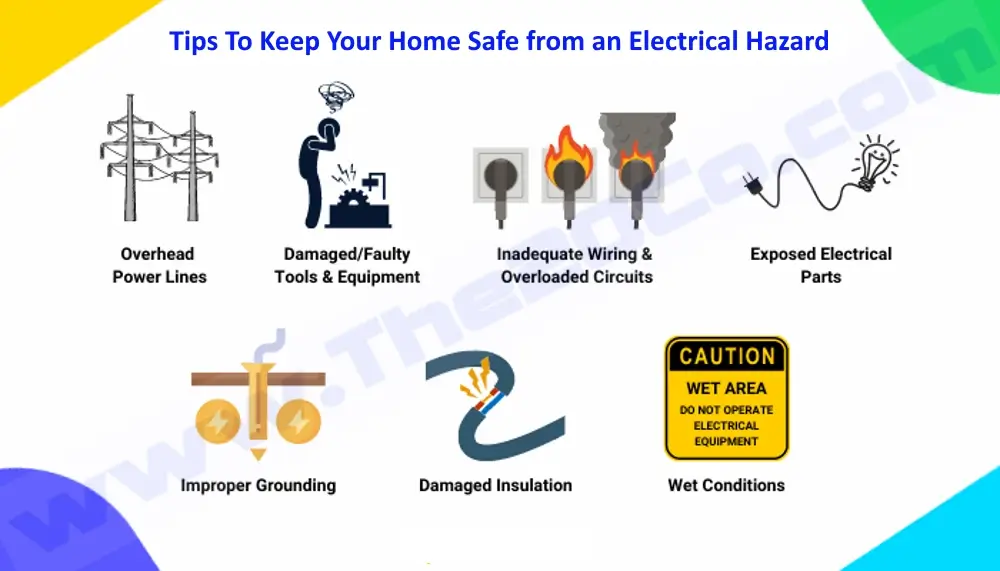Every family has at least one appliance that needs plugged in for power to work. But not all appliances are created equal. In fact, some can be very dangerous if they’re not used properly and with proper safeguards in place. The most dangerous ones are the ones that run on electricity, which is why it’s important to keep them safe and secure. Introduction: Electrical hazards can cause fires, shocks, and other dangerous situations in the home.
Follow these tips to help keep your home safe from an electrical hazard:
Check your outlets for frayed wires or sockets that are loose or cracked
There are a few simple things you can do to check your outlets for safety. First, look for any frayed wires. If you see any, it’s time to replace the outlet. Also, check for loose or cracked sockets. If either of these is the case, it’s best to have an electrician come and take a look to make sure the outlet is safe to use.
Don’t overload your outlets with plugs
Are you guilty of overloading your outlets with plugs? You’re not alone. Many people don’t know how to use an outlet efficiently and end up using multiple plugs to power a single device. This can not only be a fire hazard, but it can also damage your electronics.
There are a few things you can do to prevent overloading your outlets and using up all of your power. First, make sure you are using an appropriate adapter if you need to use more than one plug. Second, try to use surge protectors whenever possible. And finally, unplug any devices that aren’t in use.
Use caution when plugging in appliances and use a surge protector if possible
According to the National Fire Protection Association, U.S. fire departments responded to an estimated annual average of 36,700 home structure fires that started with electrical wiring, cords, and plugs from 2006-2010. These fires caused annual averages of 420 deaths, 1,570 injuries and $1.5 billion in property damage.
While many of these fires could have been prevented by following some simple safety tips, one of the most important things you can do is use a surge protector. A surge protector can help protect your appliances from power surges, which can cause extensive damage.
When using a surge protector, be sure to read the manufacturer’s instructions carefully and follow them closely. And always remember to unplug your surge protector when not in use – if it’s left plugged in, it won’t do you any good if there’s a power surge.
Keep cords away from heaters, ovens, and other sources of heat
With winter in full swing, people are using all sorts of methods to keep warm. One important safety tip to remember is to keep cords away from heaters, ovens, and other sources of heat. Heated objects can cause cords to overheat and potentially start a fire. To avoid this, try to keep cords as far away from heaters as possible.
If you must use a cord near a heater, make sure it is a heavy-duty cord that can handle the extra heat. Also, be sure to check the cords regularly for any damage that could lead to an electrical fire. Make sure all appliances are unplugged before cleaning them or doing repairs.
Don’t run cords under rugs or furniture
Most people know not to run cords under rugs or furniture, but many still do it because they don’t know the dangers. Cords running under furniture can be easily pinched, which can damage the cord and create a fire hazard. Additionally, cords running under rugs can create a tripping hazard.
Conclusion
It is important to be aware of the dangers posed by electrical hazards in the home and take steps to mitigate the risks. By following the tips provided, you can reduce the likelihood of an electrical fire or other hazard occurring in your home.

